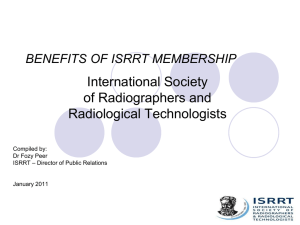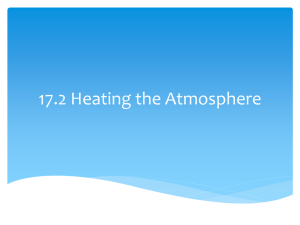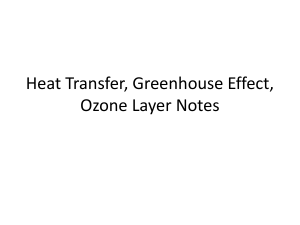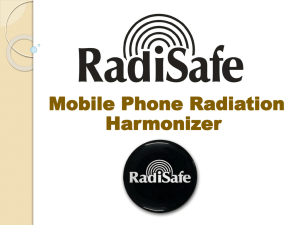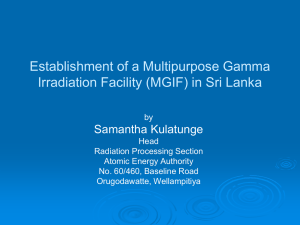Radioactive ringers part 2
advertisement
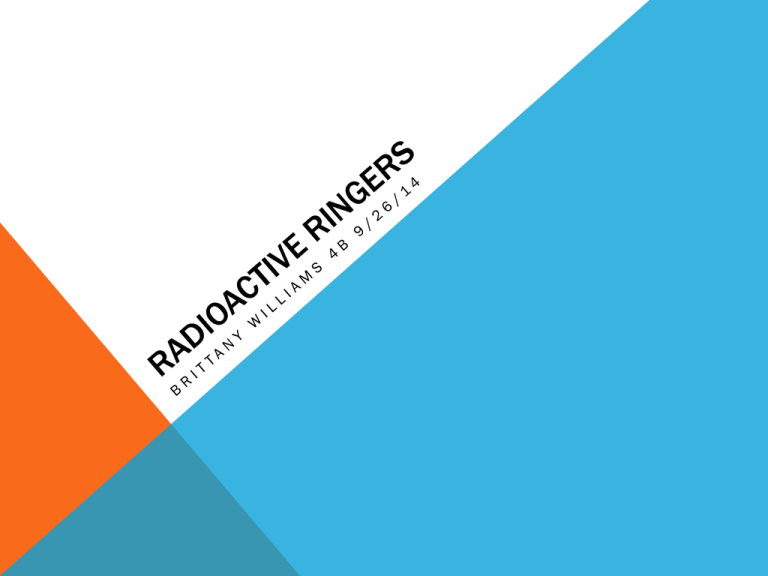
PROJECT PURPOSE The purpose is to investigate if a cellphone emits microwave radiation, and to determine the level of radiation from varying types of phones. HYPOTHESIS If I test the radiation level from a larger, bulkier phone, then the level will be higher than a smaller, lighter phone. MATERIALS 1. Various cell phone models 2. A metric ruler 3. A Microwave leakage detector PROCEDURE Step One: Select a cell phone model. Step Two: Make a phone call Step Three: Position the microwave leakage detector 5mm from the microphone and log the measurement Step Four: Position the microwave leakage detector 5mm from the speaker and log the measurement Step Five: Position the microwave leakage detector 5mm from the right side and log the measurement Step Six: Position the microwave leakage detector 5mm from the left side and log the measurement Step Seven: Repeat steps 1-6 three times per cellphone PICTURE OF PROCESS VARIABLES Controlled variables The controlled variables are the distance from the phone to the radiation detector and the amount of time that the phone is tested. Independent variable The independent variable is the type of phone. Dependent variable The dependent variable is the amount of radiation. IPHONE 5 DATA SAMSUNG STRATOSPHERE DATA MOTOROLA BARRAGE DATA GROUPED DATA ANALYSIS A radiation meter and 4 different cellphones were used in my experiment. The average radiation given off by the IPhone 5's microphone was 0.377 curies. Its earpiece gave off 0.317 curies, the left side of the phone gave off 0.52 curies, and the right side gave off 0.183 curies. The average radiation given off by the Samsung Stratosphere's microphone was 5.283 curies. Its earpiece gave off 4.81 curies the left side of the phone gave off 4.827 curies, and the right side gave off 5.34 curies. The average radiation given off by Verizon's Motorola barrage microphone was 7.84 curies. Its earpiece gave off 2.553 curies, the left side of the phone gave off 5.087 curies, and the right side gave off 5.48 curies. SEMI-CONCLUSION My hypothesis was supported. The bulkier phone, the Motorola Barrage, emitted the most radiation. HEALTH ASPECT Radiofrequency energy is a form of electromagnetic radiation. Electromagnetic radiation can be categorized into two types: ionizing and non-ionizing. Exposure to ionizing radiation is known to increase the risk of cancer. However, although many studies have examined the potential health effects of non-ionizing radiation from radar, microwave ovens, and other sources, there is currently no consistent evidence that non-ionizing radiation increases cancer risk. HEALTH ASPECT The only known biological effect of radiofrequency energy is heating. The ability of microwave ovens to heat food is one example of this effect of radiofrequency energy. Radiofrequency exposure from cell phone use does cause heating; however, it is not sufficient to measurably increase body temperature. A recent study showed that when people used a cell phone for 50 minutes, brain tissues on the same side of the head as the phone’s antenna metabolized more glucose than did tissues on the opposite side of the brain. The researchers noted that the results are preliminary, and possible health outcomes from this increase in glucose metabolism are still unknown. FINAL CONCLUSION Because the bigger, bulkier phones emit more radiation, they are more harmful to human brain cells.
